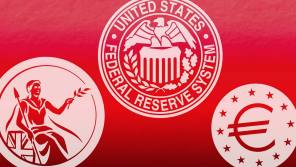

The danger of the upcoming Italian constitutional reform referendum has yet to be fully recognised by European equity investors, according to Liontrust manager Olly Russ.
The former Argonaut manager, who brought his £163m European Income vehicle to Liontrust earlier this year, said the risk of the referendum going the wrong way could jeopardise the continent’s shaky economic recovery and its recent equity market rally.
The FTSE Europe ex UK index is up 14 per cent year to date, but these gains have not been matched by Italian stocks. The FTSE Italy index has risen just 1.9 per cent over the same period, dogged by worries over its banking system as well as the referendum.
But Mr Russ said investors are not pricing in the risk that the impact the vote, now scheduled for December 4, could have on all European stocks.
“The Italian referendum is the biggest issue for European stocks and it’s tied into not only the Italian banks, but the EU as a whole,” he said.
Italian prime minister Matteo Renzi has staked his political career on the vote, which proposes amending the country’s constitution and shrinking the size of its senate, the upper parliamentary house. Supporters believe this, among other changes, would make it easier for Italy to introduce structural reforms in future. However, Mr Renzi will resign should a no vote prevail, potentially meaning an early general election.
Mr Russ said that should the opposition protest party, the Five Star Movement, prevail, anti-EU rhetoric could take hold and potentially lead to the country questioning its own fate inside the bloc.
“Brexit was a political crisis. But Italy leaving the eurozone, that’s a financial crisis. It’s a high-stakes referendum with significant upside and downside and the greatest risk for Europe,” he said.
“The reforms Italy needs can only be done if the referendum passes,” he added. “I hope the reform passes. It would be very old school to decide to keep the upper senate. But at the same time, the [part of the] population which thinks joining the euro was a mistake is growing.”
Nonetheless, Mr Russ’s fund has 10.7 per cent in Italian stocks, more than double the 4.4 per cent in his MSCI Europe ex UK benchmark. Most of this is held in two stocks: power grid company Terna and asset manager Azimut, which he sees as being relatively insulated from the struggling wider economy.
More broadly, Mr Russ has a strong overweight to financials generally, holding 34 per cent compared to an 18.6 per cent benchmark weighting – the fund’s highest sector allocation.
Swedbank, the portfolio’s second-largest holding at 3.8 per cent, is a stock which the manager has allocated to his ‘special situations’ bucket, though he described the majority of his allocation as a value play.
“The regulators are rowing back on banks. So, if you’ve seen the low in US, UK and Danish government bond yields then financials should outperform [in the future]. It’s value in the truest sense. It just needs yields to rise,” Mr Russ said.
He added: “Swedbank has scaled back its operations outside of Scandinavia, it yields 6 per cent and is a dull bank. It’s what Lloyds would have been if it didn’t buy HBOS.”
The Liontrust European Income fund has returned 27 per cent over three years, matching the IA Europe ex UK sector average, according to FE Analytics.



